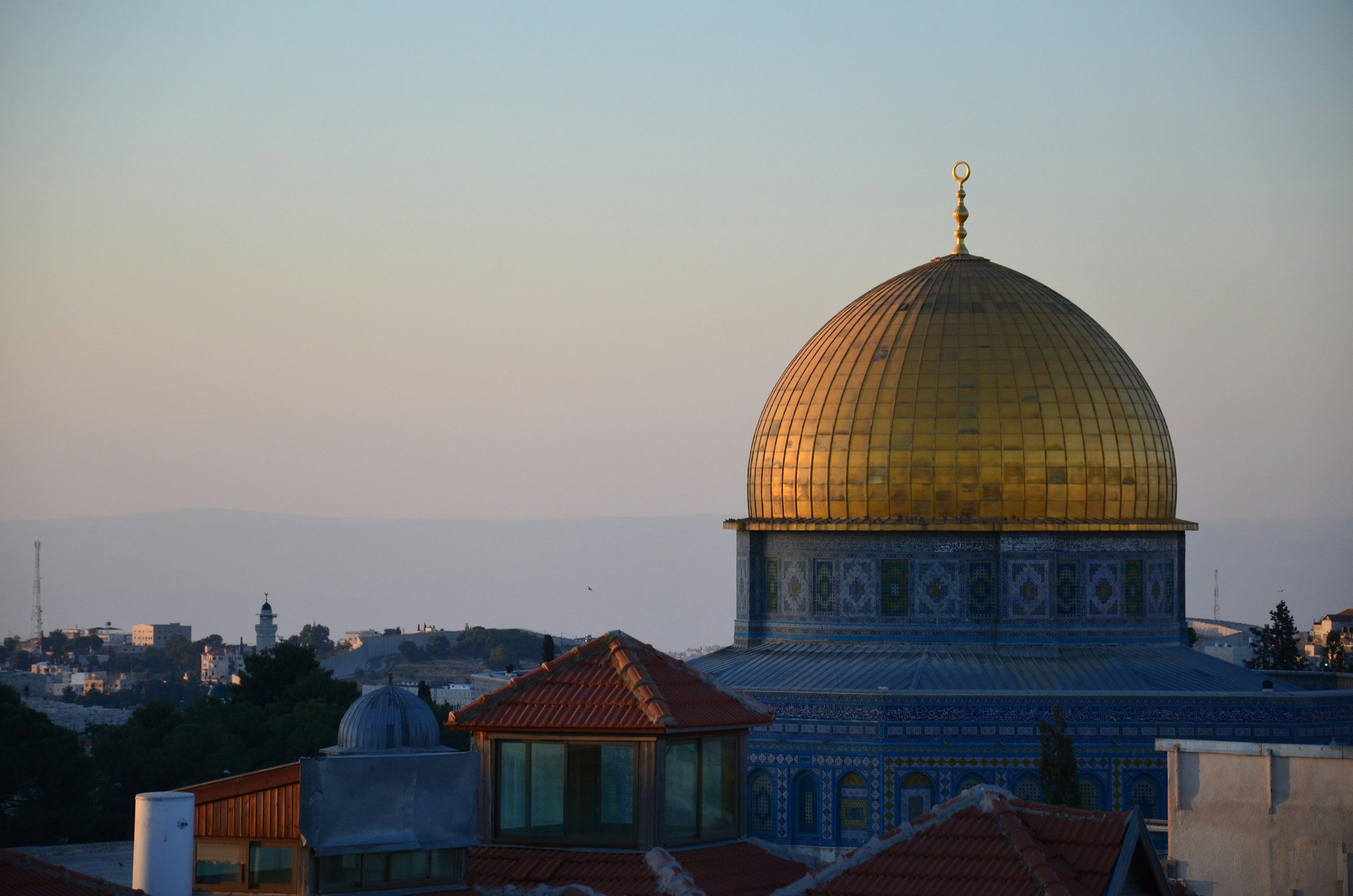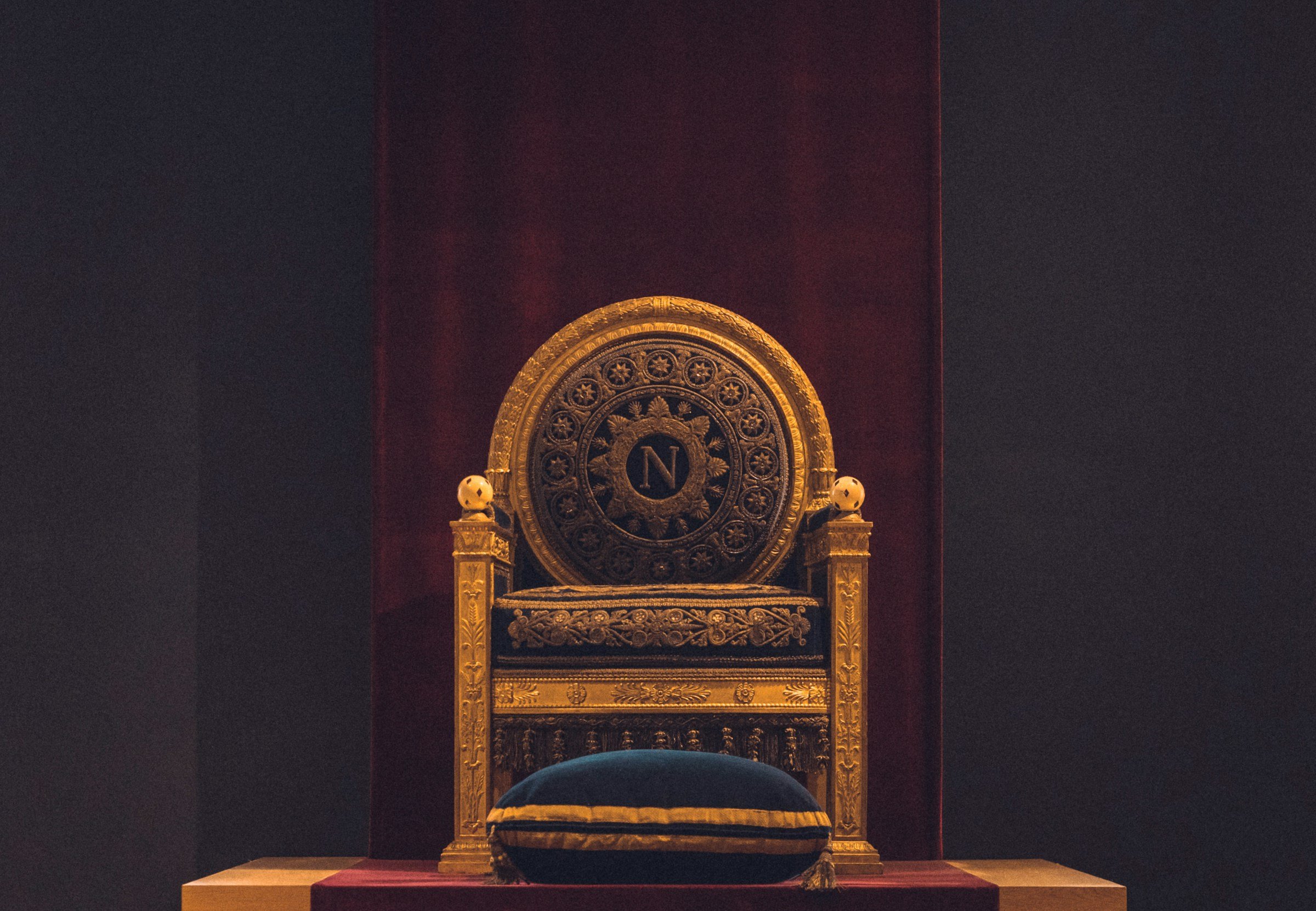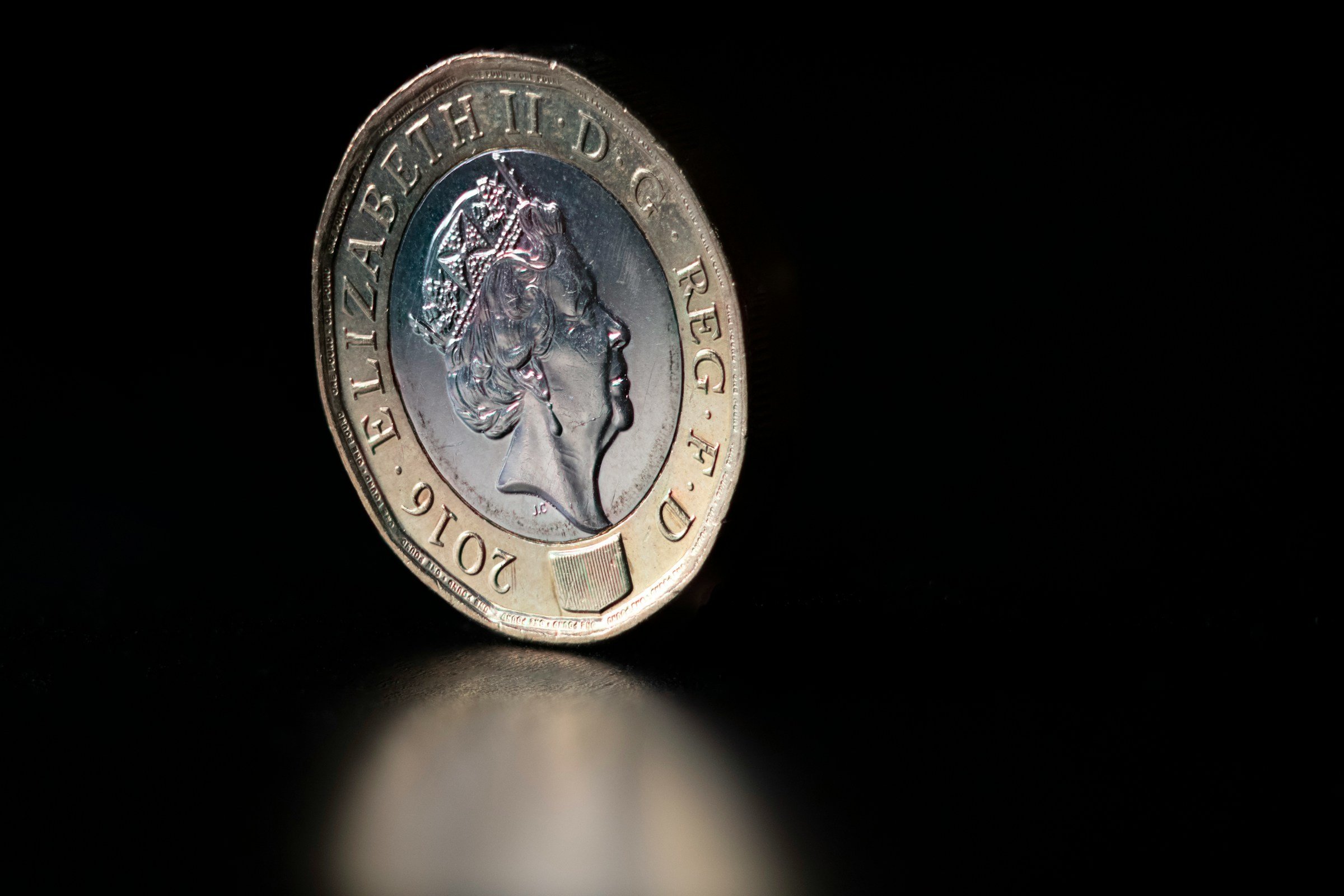Matthew: God Wants True Worshippers (22:12-22)

This sermon was preached to Grace Church Guildford on 14 April 2024. The audio recording of the sermon can be found below along with the transcript.
Modern art. You either love it, or you hate it. Find it endlessly fascinating, or incredibly boring. For some of you, it may be the highest form of artistic expression, while for others, perhaps even most of us, it just a load of rubbish. Indeed, back in 2004, one of the cleaners at the Tate Gallery made a telling mistake. Noticing a bin liner of rubbish sitting in the middle of one of the exhibition rooms, the cleaner went over, picked it up, and put it in the skip along with the rest of the trash. Unfortunately, he later discovered that that particular bin liner was actually the work of modern art in that room, a piece that was supposed to portray the finite existence of all art, point to the fact that no matter how admired a painting or sculpture may be in its time, it will eventually end up in one place: the bin. And so, in a way one might argue that the cleaner really helped the artist to make that very point! If you have ever been to the Tate in London, I am sure that you sympathise with that poor cleaner. For as you stare at blobs of paint spattered on walls, puzzle over broken chairs piled up in the corner, and gaze at a large pyramids of various fruits, you quickly find yourself wondering what it is all about. Of course, you know it all must mean something, have a deeper significance than you can initially see. And yet, working out that significance is rarely very straightforward.
And you could be forgiven for feeling something similar about our passage this evening. It might not be quite as obscure as a room in the Tate, but it is a rather strange story. It seems that Jesus not only falls out with sellers in a marketplace, but that he also gets into a fight with a fruit tree. You have the religious leaders complaining about children singing religious songs, and this rather strange suggestion at the end that the disciples should start talking to mountains. You know that it all must mean something, that there are layers of symbolism, details of great significance in this story, but trying to work out what it all actually means can seem rather complex. And so, from the very beginning tonight, I want to tell you the main point, the underlying meaning of all that happens in our passage. For here in this story, we see that God wants true worshippers. That’s the main point of our passage.
If you know your Bibles, you will remember that that was the conclusion of that conversation that Jesus had with the Samaritan woman in John 4. There, after discussing the difference between the mountain that the Samaritans worshipped on, and the temple of the Jews in Jerusalem, Jesus went on to declare: ‘Yet a time is coming and has now come when the true worshippers will worship the Father in the Spirit and in truth, for they are the kind of worshippers the Father seeks.’ What does God want? What is the Father looking for? Well, in John 4, Jesus says that he is seeking true worshippers. And we see the same in our story this evening. For when Jesus finally comes to that temple of the Jews in Jerusalem, he teaches the same truth as he shared in Samaria, only here he does it
And Jesus teaches it to us here in a very visual and even violent way. The story comes to us in two halves: (1) The Cleansing of the Temple (21:12-17); (2) The Cursing of the Tree (21:18-22). And we are going to see that both parts of the story emphasise the same central truth: God wants true worshippers.
1. THE CLEANSING OF THE TEMPLE (21:12-17)
If you recall a few weeks ago, when we were last in Matthew, you will remember that at the start of chapter 21, we had the climax of Jesus’ ministry so far. After three years of preaching and teaching, healing and performing miracles, which all revealed his royalty, the king finally came to Jerusalem. Jesus’ entry into the city is a highpoint of all we have heard in Matthew so far, and we rightly remember it each year on Palm Sunday. However, in the book of Matthew, the entry that we have in our passage tonight is actually much more significant, of even greater importance. For having first entered Jerusalem in 21:10, we read in 21:12 that ‘Jesus entered the temple courts...’.
I say that this second entrance is the more significant of the two, because it is Jesus’ entrance into the temple that sets the context for all that is going to happen in the coming chapters. You can see that by just looking through them with me. For after staying overnight in Bethany, we are told in 21:23 that Jesus returns to the temple, and so clashes with the religious leaders, debating and arguing with them for the rest of chapter 21 and all of chapter 22. Indeed, Jesus remains in the temple the whole way through Matthew 23 as well, where he pronounces woe after woe on these religious leaders. And we are only told of Jesus leaving the temple in 24:1. And yet, even then, Jesus has not finished with the topic, for as he leaves the temple, he tells his disciples about how it will be torn down, and that leads him into the fifth and final sermon of the book, which stretches across all Matthew 24 and 25, as Jesus tells his disciples about what else will happen in the future. In this way, the temple provides the context, forms the backdrop, is the stage on which the next four chapters of Matthew will play out, taking us right up to the foot of the cross, which Jesus will be condemned to die on in Matthew 26 on due to his comment about tearing the temple down.
This significance of the temple in Matthew is somewhat unsurprising when you consider its wider significance at the time. It was a huge structure; indeed, it was the largest single structure in the entire Roman world. The complex covered one sixth of the city, which is why we have seen in Acts that thousands of Christians could later meet there for worship. It was the religious centre of the Jewish nation, the place that hundreds of thousands would travel to for each of the religious festivals, the biggest being Passover, which was happening at the time of our passage. It was where the annual temple tax had to be paid, and the relevant sacrifices given by all faithful Jews. And we see in our passage, that this is where Jesus went when he got to Jerusalem. When the King came, he didn’t head off to speak with the political leaders, he sought out the religious authorities. When the Messiah arrived, he didn’t go to inspect Israel’s armies, he went to examine their worship. For that is what God wants, he wants true worshippers.
Unfortunately, when Jesus entered the temple courts that day, that wasn’t what he found. Instead of hearing the praise and prayer of God’s people, he heard the noise of money changers and animal sellers. He found the temple to be less a place of worship, and more like a busy market. Now, there were some practical reasons for those stalls being there. When Jews came up to Jerusalem for Passover, it would have been impossible for them all to bring sacrificial animals on the journey with them, and so it made sense that they would instead purchase the animals on their arrival. Similarly, it would have been inappropriate for them to pay the temple tax using idolatrous coins of Rome, with the faces of other gods on them, and so it was right they change these to pure silver coins that were free from idolatry and suitable to be offered to the Lord. It was good that people could buy animals and change their money before going to the temple. The problem was, that while these stalls were an important way to support the temple, they soon took over the temple. History tells us that what started with some sellers outside the temple walls, soon developed into a huge marketplace that swallowed up the court of the gentiles, the entire first ring of the temple complex. And so, when you came into the temple, what you saw was not gentiles from across the world worshipping God together as envisaged, but thousands of pilgrims trying to change money and buy animals. What started out as a helpful practice, was now an all-consuming one. What began as an effective way to achieve a good goal, had ended up becoming a giant distraction. For rather than helping worship, it was now hindering it.
And brothers and sisters, this should act as a warning for us as God’s people today. For we must take great care not to make the same mistake. Not to allow our local churches to become like the temple was that day. Not to allow secondary means to overshadow primary ends. Grace Church, in our life together, we must always seek to keep the main thing, as the main thing. Our main purpose as a church must always be worship, to be a people of prayer and praise, and we must be careful not to let anything else distract us from that great end, even others good things. For what God wants most is true worshippers.
Brothers and sisters, the how (or way) of church must never become more important than the why of church. Our structures and systems must always serve, and never overshadow, our spiritual life together. Programmes and activities must not be allowed to crowd out prayer and praise. We must always make sure that the way we are doing things is a help, and hasn’t become a hindrance. Is supporting our spiritual growth, rather than simply distracting us from it. That means that traditions, and the way things have been done in the past, must always be open for reexamination, up for reconsideration. Is the way we are organising music helping or hindering our sung worship? Is the way we are doing children’s ministry helping or hindering our goal of raising up future followers of Jesus? Is the way we are structuring our services and planning our sermons still a help rather than a hindrance? In short, is the main thing still the main thing? Or have we let secondary means distract us from our primary end?
Brothers and sisters, there are two ways that a church can die. It can die by everyone leaving, no one coming along to its services anymore. There is no longer any prayer and praise, because there are no people left to worship there. However, it is also possible for a church to slowly die in a much more subtle way. For the congregation to become so busy working at church, that they are no longer worshipping at church. For the externals of our life together to overshadow the internals of our life together. For emptying the dishwasher to take on a great priority than engaging in conversation. For filling a rota to become more important than building a relationship. Brothers and sisters, it is possible for a church to drown itself in distraction, to slowly strangle itself to death with legitimate forms of service. For that’s what happened at the temple. It was packed out. The courts were crowded. Externally it looked wonderful! There were even these stalls that you could go to to buy your sacrifice and change your coins. How helpful is that! But the main thing was no longer the main thing. The means had overshadowed the ends. Oh, Grace Church, let it not be so with us! For what God wants most in his church today is not simply trusty workers, he wants true worshippers.
What was supposed to be a place of religious devotion, had simply been reduced to a place of religious activity. And this so angered Jesus, that in 21:12 he “drove out all who were buying and selling there.” Sometimes people speculate that the problem here is really that the money changers and dove sellers are extorting their customers, charging inflated prices. However, I think the fact that Jesus drives both sellers, and buyers, out in 21:12, shows that he is angry all of them, with the whole idea of what was happening, not simply any economic exploitation. As the quote from Isaiah puts it in 21:13, when the Messiah came, the temple should have been a house of prayer, but instead he found it to be a bit like a shopping centre. If you go away and look at the context of that reference to den of robbers in Jeremiah 7, you will see that the problem is not that they are robbing other humans, but rather that are robbing God, taking his glory, preventing his worship. And so, just as Jesus drove demons out earlier in the Gospel, the same word is used here for him casting these activities out of the temple. For what God wants is true worshippers.
However, our story this evening not only involves Jesus casting people out, but it also has Jesus calling people in. For after he clears the temple, in 21:14 we read: [READ]. The blind and lame would have been unable to enter the main part of the temple, go beyond the outer court of the gentiles. They were unclean, and so unfit to appear in God’s presence. And yet, here we see that Jesus changes them, enables them to go where they had never been before. As we heard this morning, he is able to bring them back to God. In this way, Matthew 21 not only involves the cleansing of the temple, but also a cleansing in the temple. For Jesus not only cleanses the place, but he also cleanses the people. He makes the weak and wounded whole. And so, he not only shows his justice, but also shows us his grace. And by this, transform the temple into that promised house of prayer. For having driven out commercial activities, he now fills it with spiritual worship. For we end in 21:15 with children loudly praising God for the ‘wonderful things’ Jesus did. And so, through Jesus, the noise of money changers and animal sellers is replaced by the sound of singing, of giving thanks to God for the wonderful works of his Son.
If you are here tonight, and you are not a Christian, that is what Jesus can do in your life. That is the difference that Jesus can make. We have heard this evening that God wants true worshippers. And you know, that’s not just true of his temple, or his church. But rather, that is true of all people. The Bible is very clear, that we were all made to worship God, that is our great goal, our overall purpose as human beings. We heard that at the beginning of our service from Psalm 8, where we were told that all of creation was built as a temple to the Lord. It was made so we might look at the sky and stars, the earth and sea, and gaze at the greatness and glory of God, and give him praise because of it. However, instead of the earth being filled with prayer and praise, the Bible tells us, indeed our own experience tells us, that it has been instead filled with sin and suffering. Instead of giving God glory, we all busy ourselves with our own lives, pursue our own dreams and desires. As we heard this morning, like sheep we have all went astray. And so, just as Jesus came to cleanse the temple that day, the Bible tells us that he will come again to do the same to this whole temple of creation. He will drive out all those who refuse to worship him, casting them into Hell forever, and then will fill the temple of this earth with his followers, who will spend eternity in prayer and praise. Like the blind and lame in our passage, none of us deserve to be there, to enter into the eternal presence of God. But through Jesus’ grace and mercy, if we come to him for healing and forgiveness, he will make us fit to stand among that great congregation forever. For the most wonderful thing that Jesus accomplished was not healing in the temple, but hanging on the cross. Taking the punishment for all the sin of those who trust in him, so that we can be cleansed, forgiven, and brought into the presence of God. Friend, you were made to worship God. And if you come to Jesus, you can. Will you do so this evening? Will you ask Jesus to heal you from your sin? For if you do, you too will be able to join in the loud song of the children in our passage, giving thanks and worship to God for the wonderful works of his Son.
2. THE CURSING OF THE TREE (21:18-22)
In 21:17, Jesus leaves the crowded city of Jerusalem to stay a night in Bethany, where it was easier to find a bed. However, on the way back to the temple the next morning, Matthew records a rather obscure story for us, involving what really boils down to a fight with a fruit tree. There is a beautiful contrast between the end of the last story and the start of this one. The previous day came to a close with Jesus being praised by the people as their Messiah, indeed the quotation from Psalm 8:2 in 21:16 not only ascribed to him the status of Messiah, but of God himself. For in Psalm 8, it is the Lord God that the children are said to be singing to. However, as the next day begins, it is not Jesus’ divinity, but rather his humanity, that is highlighted, for we are told in 21:18, that ‘he was hungry.’ The one who is praised by all of creation, now experiences an empty stomach, has a rumbly belly before his breakfast. And so, on the way into the city, seeing a fig tree covered in leaves, he goes over to enjoy its sweet fruit. However, we read in 21:18, that finding there to be no fruit on it, despite the leaves, Jesus curses the fig tree, and it withers away.
It is a strange story and naturally leads us all to ask, why would Jesus do that? What does it mean? Like a piece of modern art, we know it symbolises something, but can’t immediately see what that might be. However, in order to unravel the riddle, you need two other pieces of information: (1) You need to know that that a fig tree should develop its leaves and its fruit at the same time. And so, if a fig tree is covered in leaves, it is a sign that it should also be covered in fruit. This tree had the external appearance of fruit from afar, but when Jesus came close to inspect it, he found none there. The tree had show, but not substance. And in that way, it was a kind of horticultural hypocrite! It suggested one thing, but was really another. (2) The second thing you need to know is that Israel is commonly likened to a fruit tree in the Old Testament (e.g. Isaiah 5), and even a fig tree itself in Jeremiah 8 and 24. Which I hope helps you to start to see the symbolism. For this fig tree is really a picture of Israel, an object lesson on what has just happened in the temple, and is about to happen in the coming chapters. The nation of Israel was a lot like this fig tree, it gave the allusion of spiritual life, but missing the main thing. Jesus had not found their temple to be a house of prayer. And even after he cleansed their temple in the last story, the religious leaders grumbled and complained about it being a house of prayer and praise. The nation of Israel, the people of God, like this fig tree, had lots of external show, but little internal substance. And this only becomes clearer and clearer in the coming chapters, as Jesus clashes with their religious leaders again and again. Indeed, by the time you get to Matthew 23, Jesus will curse those leaders in the same way as he cursed this tree. He pronounces woe on their hypocrisy, as he did to this tree, and says that the temple will be torn down, never bear spiritual fruit again.
That is what this incident with the fig tree means, it is a picture of all Jesus has just done and will do to the nation. And yet, did you notice that that question: ‘Why did Jesus do this?’ ‘What does this mean?’ Isn’t the question that the disciples ask in our passage. I think seeing that is the key to understanding the flow of our text. For otherwise, 21:21-22 seem somewhat unrelated. Why does Jesus end up talking about a mountain rather than about this tree? Well, it is because, the disciples don’t ask why the tree withered, but how it withered. In 21:20, we read: [READ].
As we thought about back in chapter 17, when Jesus said something similar after the transfiguration, this idea of moving mountains was a common Jewish proverb for doing the impossible, overcoming all obstacles. And here Jesus promises that power to his disciples, if only they devote themselves to prayer. And I hope you see how that reference to prayer at the end connects back to all that Jesus has been saying and showing about the temple. The temple was supposed to be a place of prayer, but now Jesus is saying that his followers will fulfill that role. After the temple has been destroyed, there will no longer be a place of prayer, but rather there will be a people of prayer. A new temple. A people that will be all that the Jews, and the temple, were supposed to be. For while the old Israel withered like the fig tree, this new people of God, the church, will flourish and bear great fruit. They will prioritize prayer in a way that Israel failed to do, and so experience its earth changing, world shaping, power. Not simply the power to wither a tree, but even to pick up a mountain and cast it into the sea. The church will have the power to do what seems impossible, to reshape this world as we know it, which is exactly what we have heard happened in the book of Acts, exactly what we see happen throughout church history. The temple should have been the place where all the nations of the world came to worship God, but now in the church that great goal is now achieved, for the gospel has gone out to those same nations, and is producing that promised people from every tribe, tongue, language and nation, a people who will filled with praise and prayer forever.
Brothers and sisters, if the first part of our passage this evening highlighted the priority of prayer, here in the second part we see the power of prayer. For while a people who focus on the externals of religion will wither like the fig tree, those who devote themselves to the internal will flourish. It is true worshippers that God will use to do his work in this world. If you want to do great things for God, you will need to have great trust in God. For faith filled prayer can move mountains, reliance on God can remove all the obstacles that stand in your way. In the end, what we believe in our heart is more important than what we can do with our hands. It is our prayer life that is the measure of our church life, and of our own individual spiritual lives as well. As the Scottish minister, Robert Murray McCheyne, put it, ‘what a man is on his knees before God, that he is, and nothing more.’ These verses are a real challenge, a call for us all to reassess our routine and rhythm of prayer, to make sure we are prioritising prayer as we ought.
However, as we close, I want to you also see the great comfort of these verses. The encouragement that this truth provides. Perhaps you feel tonight like you are facing a mountain. Life right now feels a lot like hiking uphill, a constant struggle, a continual weariness. You feel like you are marching up a mountain, with the top nowhere in sight. Well, if so, see here that there is a way for that mountain to be moved, for your situation to be reshaped in ways beyond all possibilities. Give yourself to prayer, and see how it can either change your circumstances, or can sustain you through them. Or perhaps this evening, you feel a lot like that fig tree, withered and weary, spiritually dry and lifeless. Well brother or sister, give yourself to prayer, and see how it is able to revive and restore you, to cause you to grow again and flourish in fruitfulness. For we see here that those who prioritise prayer, experience the power of prayer. That people of great prayer are people of great power. That nothing can stand in the way of people who pray.




